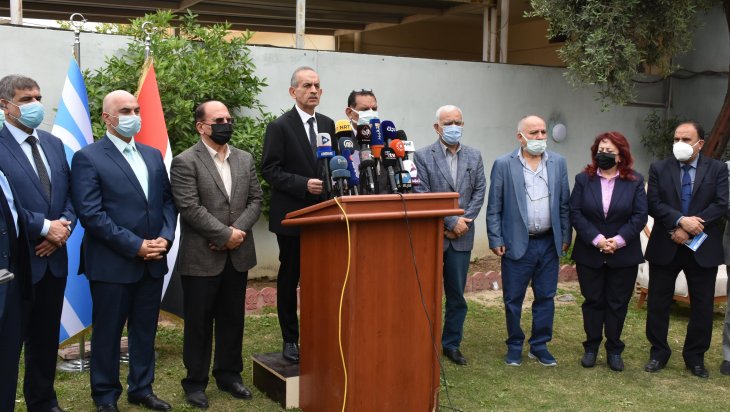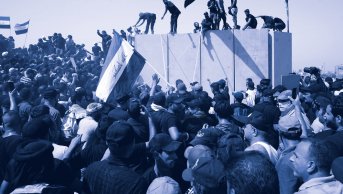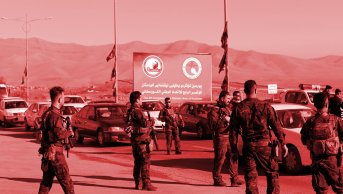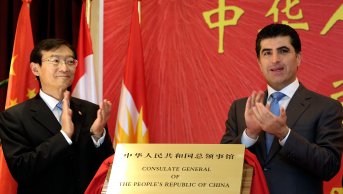Iraq’s Upcoming Elections: One-List Decision by the Turkmen

Early elections, set for 10 October 2021 by a decision of the Iraqi parliament, are approaching and, in parallel, the political parties’ preparations for the elections are picking up steam. Having called on the central government to hold early elections since the beginning of 2021, Turkmen political parties are also preparing for the elections in order to obtain strong Turkmen representation in parliament.
The decision of the Iraqi parliament at its session on 29 October 2020 to divide Kirkuk into three electoral districts was one of the important factors that made it necessary for Turkmen political parties to disclose their electoral strategies in the wake of this decision. The decision has divided Kirkuk into three regions with 12 parliamentary seats in total, which are distributed as follows: 4 in the centre of the province, 5 in the east of Kirkuk, and 3 in the region covering Hawija and Riyadh. This new decision has also marked the start of consultation meetings which aimed at ensuring the civil Turkmen participatation in the elections under a common umbrella, while Turkmen parties have accelerated their preparations for the elections with a particular focus on Kirkuk. Meetings aiming to go into the elections with a single list were held in this respect between Turkmen political parties in January and February 2021. But the desired joint position was not fully achieved mainly because of discussions on who would be the leader of the list. Nevertheless, the negotiation process between the parties resulted into a joint decision to contest the elections with a single list. At the press conference held in Kirkuk on 8th April after a meeting between the representatives of Turkmen political parties at the headquarters of the Iraqi Turkmen Front (ITF), the parties announced that the nine political parties that attended the meeting would participate in the elections under a single list. Hasan Turan, ITF chairman, was elected head of the list and the name of the list was given as the “Iraqi Turkmen Front Coalition”. The ITF, Turkmeneli Party, Turkmen Will Party, Turkmen Nationalist Movement, Turkmen Justice Party, Turkmen Decision Party, Turkmen Rights Party, Turkmen Fidelity Movement and Turkmen Islamic Union were the political parties on the announced list.
The decision of the nine parties to form a coalition is important in a sense that, the Turkmen parties which are mentioned above; represent a common will, far from any division, and to focus on getting the maximum number of MPs in parliament. With their joint stance, Turkmen politicians have thus taken an important step to show that they place the future of the Turkmen people and the Turkmen regions above the individual interests of the parties. It would be wrong to say that this move would not have an impact on the voting motivation of Turkmen voters. It is of great importance that Turkmen voters receive their voter cards at the designated points in the provinces to vote in the elections. The low voter turnout in Iraq also affects the Turkmen population, which may hinder the desired success of Turkmen politicians in the elections. Indeed, actions such as the reappointment of Sevsen Tayyip as head of the Kirkuk office of the Iraqi High Electoral Commission, whose name was implicated in election rigging claims in the 2018 elections, have raised concerns among the Turkmen citizens about the security of the upcoming elections. The fact that Turkmen protests after the 2018 elections, such as the Blue Flag resistance, failed to produce results, which has revived the negative memory that electoral rigging could not be prevented. When it comes to voter motivation, Turkmen political parties must convey a message of unity to the Turkmen people with a joint list, drawing a picture away from strife and division among themselves. Continuing this stance will serve to improve the living standards of the Turkmen people in economic and social spheres in addition to political issues such as the disputed regions and presenting political discourses and roadmaps to the public with a common cross-party stance will help create a positive mood of unity messages for the electorate.
With seven months to go until the elections, the Iraqi Turkmen Front coalition has a long demand list from the voters in Kirkuk, as well as in other provinces like Mosul, Diyala, and Saladin with a high Turkmen population, which are waiting for a solution. From an economic and social point of view, we see that the aforesaid provinces face many problems. In addition to the current unemployment problem, the Kirkuk Governor announced that 325 development projects in the city had been stopped due to the pandemic and that 10 thousand people had become unemployed with the stoppage of the projects. Moreover, official sources in Kirkuk reported that 138 villages destroyed by ISIS in the southern part of the city still needed to be rebuilt. Looking at the Tal Afar district of Mosul, which is also known for its dense Turkmen population, we see that post-ISIS reconstruction activities are in a much more inadequate state. Security threats are also one of the major problems of the people living in these regions. Today, Kirkuk, Diyala, and Saladin are the provinces where the cells of the ISIS terrorist organization are most active. Especially since the beginning of 2021, there has been a significant increase in cases of abductions of civilians by ISIS fighters in districts such as Dibis and Hawija in Kirkuk, Khanekin, and Kifri in Diyala, and Tuz Khurmatu in Saladin. On the other hand, the PKK terrorist organization has also increased its activities in the regions where the Turkmen live, in particular in Kirkuk, and has even committed acts of terrorism against the Turkmen.
All these problems form a significant part of the demands of the voters waiting for a response from the coalition formed for the success of Turkmen politics in the October elections. In fact, presenting these issues only as the problems of the Turkmen people would be wrong. Generating political discourses to solve these issues, which are also a problem for the entire Arab, Kurdish and Christian population, and creating concrete roadmaps for the solutions will contribute to the peace and stability of the region, which will have a positive impact on the success of Turkmen politics.
The principles proclaimed together with the single-list decision show that the political parties that have come together under the umbrella of a coalition want to start from a broader perspective that not only includes the elections, but also forms the basis for Turkmen politics after the elections rather than only presenting an election-oriented perspective. In particular, the emphasis on acting according to national principles within the framework of Iraq’s territorial integrity also indicates that the program to be implemented by the coalition will involve Iraqi politics and the Iraqi people.
On the other hand, the transfer of control over Kirkuk from the KRG to the central government with the military operation in October 2017 and the will to strengthen and maintain this control in a stable manner was announced to the public in a joint statement by Turkmen parties. Indeed, the possibility of the Peshmerga returning to Kirkuk and of Kirkuk falling back under KRG control by fait accompli, as was the case when the ISIS gained strength in 2014, is one of the main concerns of both the Turkmen and Arabs in Kirkuk. Therefore, it would not be wrong to say that the common policies that will be worked out to address these concerns will also form the basic dynamics of the policies the Turkmen coalition will pursue during and after the elections. The Iraqi Turkmen Front Coalition must generate discourses to solve problems that closely concern Iraqi national identity as well as other ethnic and confessional identities. It would, therefore, not be wrong to say that one of the positive consequences of parties coming together to form a coalition will be evolving within this framework. The coalition includes very experienced political figures who have been active on the Iraqi political scene for many years and have therefore been able to closely observe the political, economic, and social problems of Iraq and the Iraqis. It is fair to say that the policies to be developed by Turkmen politicians under one umbrella, who has long been involved in politics in Iraq, both for the Turkmen and all other components of Iraq, will also contribute significantly to strengthening Turkmen politics in Iraq during and after the electoral process.








